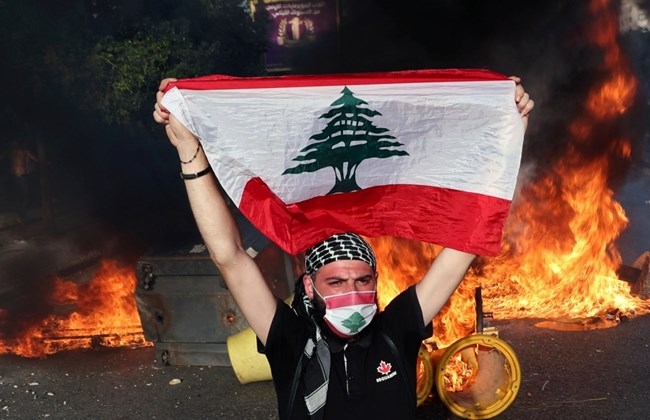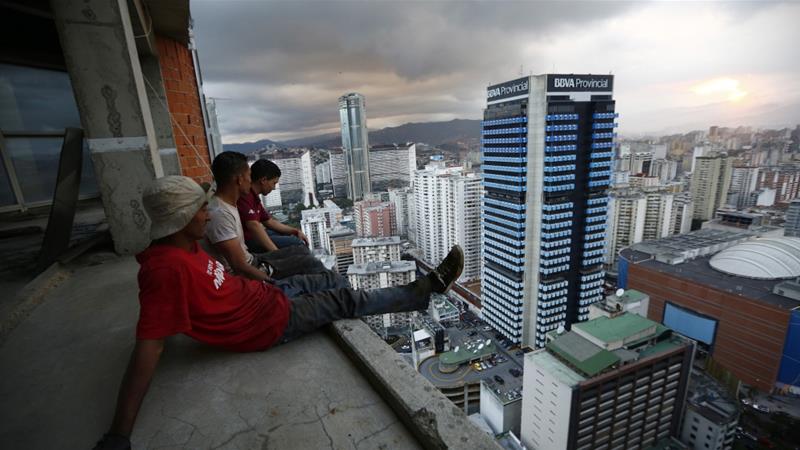Protesters in Lebanon returned to the streets on Saturday as COVID-19 curbs eased, but demonstrations turned violent off the back of sectarian clashes and calls for Hezbollah to disarm.
The protests that engulfed Lebanon from the end of October until the COVID-19 outbreak hit in mid-March returned with a vengeance on June 6. Lebanese people returned to the streets, gathering in Martys Square in downtown Beirut after the easing of coronavirus curbs.
Demonstrators, many wearing masks, began peacefully protesting the country’s economic collapse, endemic corruption, and lack of government services, while some called for the disarmament of militia group Hezbollah.
“We came on the streets to demand our rights, call for medical care, education, jobs, and the basic rights that human beings need to stay alive,” 21-year-old student Christina told the French Press Agency (AFP).
The COVID-19 crisis has accelerated Lebanon’s economic and social decline, pushing unemployment to 35% and the poverty rate to 45%, according to government figures. The country is also in the grips of a currency crisis, and the Lebanese pound has fallen from an exchange rate of 1,507 to more than 4,000 pounds to the dollar, causing inflation to skyrocket.
Some protestors clashed with police, throwing stones, setting fire to rubbish bins, and looting luxury shops in the city center. Anti-riot police hit back with tear gas, injuring 48 protestors and hospitalizing 11, the Lebanese Red Cross reports.
Sectarian clashes
Calls for Iranian-backed Hezbollah to be disarmed triggered sectarian violence after some counter-demonstrators insulted the Prophet Mohammed’s wife Aisha and other historic Sunni figures, inflaming Sunni-Shia tensions.
The military and riot police held back Hezbollah and Amal counter-demonstrators who gathered near downtown Beirut to clash with protestors calling for disarmament. As security forces dispersed the main protest, Shia Hezbollah and Amal supporters taunted protestors in Sunni neighborhoods around the capital and in regional cities such as Tripoli and Sidon.
Clashes between Sunni-Shia protests and counter-demonstrators went viral on Lebanese social media, and gunfire rang out in some Beirut suburbs. The police and military were deployed to ensure calm and Lebanese religious and political leaders were united in calling for peace.
The top Sunni religious authority, Dar al-Fatwa, warned the faithful of “falling into the trap of sectarian strife.”
“The cursing of Sayyida Aisha can only come from an ignorant person who should be enlightened,” Dar al-Fatwa said in a statement.
“I appeal to all countrymen in all regions to follow the call of Dar al-Fatwa and warn the Muslim public against falling into the trap of sectarian strife,” former Prime Minister Saad Hariri said in a statement, reiterating Dar al-Fatwa’s entreaty.
Current Prime Minister Hassan Diab joined the chorus of voices denouncing the Sunni-Shia clashes and the use of religious slogans on Twitter.
“The prime minister condemns and denounces in the strongest terms, all sectarian slogans … and calls on all Lebanese and their political and spiritual leaders to exercise awareness and wisdom and cooperate with the Army and security services,” he wrote.
It remains to be seen if protestors will heed the leaders’ warnings or if Lebanon will experience another night of violence Sunday evening.
Read also: Foreign Powers Call for Reforms Before Delivering Aid to Lebanon


